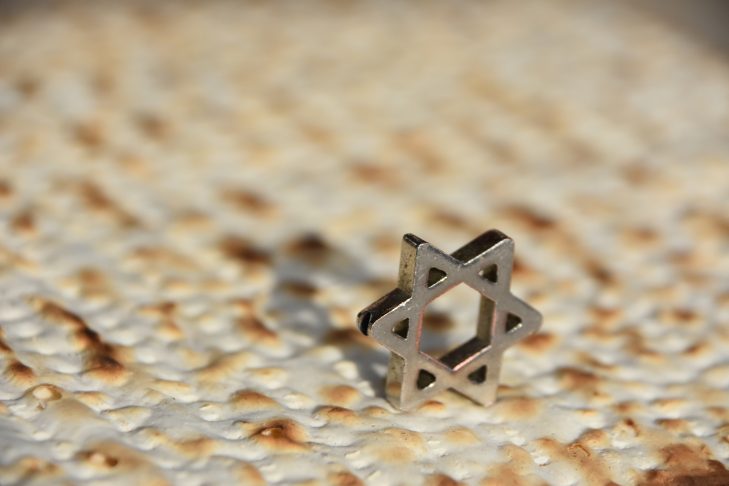How is this period of social distancing different from all other periods? Let me count the ways.
It has been analogized to 9/11, World War II, shelter-in-place after the Boston Marathon bombing, even an extended snow day.
But, alas, it’s not exactly like any one of those experiences because the enemy is silent and invisible and could live within any one of us. We are taking radical precautions that have totally upended our lives.
Just today, for example, I am engaging in what could be characterized as a Talmudic disputation with my sister and husband as to whether it’s safe to continue daily newspaper delivery and what the risks might be. Two weeks ago, this very discussion would have seemed preposterous.
The seeming peace and quiet in our neighborhoods is deceiving.
The daily news about what’s occurring beyond our homes is alarming. A war is indeed being waged in the hospitals. We see the photos and hear the statistics as many of us start to know directly or indirectly individuals who are infected, and have not survived.
Side by side this dreadful battle that is being waged and the litany of inconveniences caused by being house-bound, many of us are also experiencing some wonderful and novel things as a result of the pandemic, the silver lining, so to speak. We are reuniting with far-flung friends and family virtually on Zoom, a platform that for most of us was something of a mystery a mere four weeks ago. Now, it’s our best friend.
On Yom Kippur, we Jews recite the litany of ways in which destiny may determine our fate in the upcoming year: Who shall live and who shall die? Who in a timely manner and who in an untimely manner? One of the dire options for meeting one’s maker is “pestilence,” or in Hebrew “magefa.” To me, dying due to a magefa always seemed like a remnant from medieval times, and not at all relevant. But here we are, worried about potential loss of life due to a pandemic. So there was wisdom after all in the Yom Kippur liturgy.
In this current prolonged experience of uncertainty and ongoing daily tragedy, the words of Jewish prayer and the regularity of Jewish ritual has taken on new relevance and is a great source of reassurance and even hope.
For me, the daily Zoom minyan at my synagogue provides comfort and community. It also reminds me what day of the week it is, as every day has its own special psalm that we recite. The brief and thoughtful words of wisdom from traditional sources that the rabbi provides inspire further reflection, as does the participation of fellow synagogue members.
Zoom Kabbalat Shabbat is likewise a wonderful innovation: I’ve experienced this now on a regular basis with the CJP Boston-Haifa Connection: a substantial group of Bostonians and Haifaim lighting Shabbat candles, singing and hearing words of Torah together. Likewise, the Israel-American Council has instituted a weekly Kabbalat Shabbat across America. It’s very moving to “chat” online with total strangers across the continental divide. And my grown children, who are sometimes reluctant to come for Friday night Shabbat dinner, are now eager to light candles and chant blessings with us via Zoom. I believe they find comfort in this now-virtual tradition in a way that was unimaginable a month ago.
On a sadder note, I’ve attended a virtual shiva for a friend’s mother who died (not of the coronavirus) which turned out to be as uplifting as any shiva I’ve ever experienced.
Jewish magic is playing out in so many innovative ways because we have an amazing infrastructure of tradition and rituals that are being creatively adapted and imbued with new meaning.
And as I write, the Jewish world is on the verge of the most major adaptation of all: the virtual seder. There is so much creative thinking zooming around the web about these preparations, it’s mind-boggling! Not to mention, of course, the numbers of community seders to be run on Zoom by religious communities.
We still have two nights to observe, after all!
So, in facing the weirdest and most harrowing period of our lives and in the history of the modern world, we Jews are indeed fortunate to have the richness of our traditions to guide and support us.
This is indeed a very challenging time for our religious leaders, who are no doubt counseling many fearful and anxious congregants, and I pray for their inner fortitude and safety.
Our tradition teaches us to engage in self-care, in care for others and to take action. As Jews, we have a powerful foundation on which to weather this storm by deriving comfort, strength, inner wisdom and a sense of purpose to help others who are struggling in this uncertain time.
By taking personal responsibility for our own safety, we each have a higher purpose to protect both ourselves and others from the “magefa,” and by preparing to engage in Pesach seders, we can truly fulfill the mitzvah of welcoming the needy and contemplating what deliverance from slavery to freedom means for us in this period of bondage. Never has the seder seemed so relatable to me now that I have an actual taste of deprivation of freedom.
May the lessons of Passover provide inspiration and hope to us in this spring season that will surely change us all forever. And may each of us find the inner strength to do whatever we can to support our families, our neighbors, our colleagues and community, as we are all in this together. Our Jewish heritage continues to provide the foundation and tools to do so.
Dayenu!
This post has been contributed by a third party. The opinions, facts and any media content are presented solely by the author, and JewishBoston assumes no responsibility for them. Want to add your voice to the conversation? Publish your own post here. MORE



